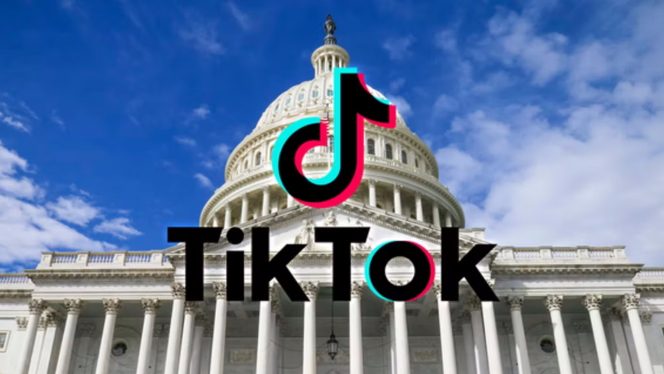In Beijing, there’s a growing focus from the U.S. Congress on American capital believed to be fueling China’s military advancements. This suggests that heightened scrutiny over U.S. investments in China may persist beyond presidential administrations and potentially become enshrined in law.
Despite previous setbacks in 2023, which failed to halt U.S. investments in specific Chinese sectors, certain members of the House of Representatives are persisting with their efforts.
I strongly believe Congress must take decisive action to address this issue once and for all. Otherwise, we’ll continue to see a cycle of shifting policies with each new administration or regulatory change,” stated Mike Gallagher, Chairman of the House Select Committee on the Strategic Competition Between the United States and the Chinese Communist Party, in a recent CNBC interview.
“In critical technology sectors, we cannot afford to keep fueling our own downfall. We need to cut off the flow of funds,” added Gallagher, who also chairs the House Armed Services Subcommittee on Cyber, Information Technologies, and Innovation, as well as the Permanent Select Committee on Intelligence.
The House Select Committee on the CCP, established in January last year, spearheaded legislative efforts to effectively ban TikTok in the U.S. unless its Chinese parent company, ByteDance, sells the popular social media platform. The bill successfully passed the House last week and now awaits Senate approval to become law.
In February, the House select committee released a report alleging that U.S. venture capital firms had invested substantial sums “into PRC companies fueling the CCP’s military, surveillance state, and Uyghur genocide.”

The extent of U.S. firms’ awareness of these alleged links remains uncertain, and Beijing has consistently denied accusations of genocide.
Since late 2023, similar research shedding light on the connections between U.S. capital, venture firms in China, and Chinese tech startups has gained traction in major media outlets.
The study, conducted by “Future Union,” a bipartisan advocacy organization, aims to address emerging technology and security challenges facing the U.S. and its allies.
According to the report, maintaining accountability and fidelity to the rule of law is crucial for ensuring the success of leading technologies in the global market.
Future Union also released a list of top venture investors in technology and defense that are deemed to be advancing America’s interests through their actions.
While little is known about the advocacy group’s background, its executive director, Andrew King, clarified that the organization is solely funded by himself and has no affiliations with external entities seeking financial gain.
King emphasized the importance of addressing the exploitation of private markets, highlighting the detrimental impact on technological advancements.
Ploitical Hurdles
Passing comprehensive restrictions on investments in China has proven challenging for the U.S. government, despite bipartisan consensus on adopting a tough stance against Beijing.
In July, the Senate overwhelmingly approved a bill mandating U.S. investors in advanced Chinese technology to notify the Treasury Department. However, this legislation, which was a diluted version of earlier proposals, failed to pass the House.
In August, the Biden administration issued an executive order targeting U.S. investments in semiconductor, quantum computing, and artificial intelligence companies, citing national security risks. While Treasury is tasked with implementation after a public comment period, no further details have been disclosed.
Expanding on this executive order, House Foreign Affairs Committee Chairman Michael McCaul and Ranking Member Gregory W. Meeks introduced the “Preventing Adversaries from Developing Critical Capabilities Act” to restrict investments in hypersonics and high-performance computing.
However, it remains uncertain if or when these proposals will be enacted into law.
Following the release of Biden’s executive order, China’s Ministry of Commerce urged the U.S. to respect market principles and fair competition, cautioning against actions that could impede global trade and hinder economic recovery.
China’s National Financial Regulatory Administration did not provide an immediate response to a request for comment on this matter.
What’s Next
King anticipates that U.S. firms will soon be required to notify the government about investments in China concerning quantum computing and artificial intelligence, emphasizing the impending need for transparency in such transactions.
However, he believes that enacting stringent restrictions may face challenges in Congress due to entrenched interests, particularly focusing on companies with military ties or connections to sanctions and export controls.
While specific Chinese companies have been blacklisted, the U.S. Department of Commerce has implemented broad restrictions to hinder China’s access to advanced semiconductor technology.
Despite the current pause in U.S. institutional investment in China due to regulatory uncertainties, King foresees a lucrative market once China overcomes its economic challenges. He notes that many global asset managers are keen on maintaining their options to capitalize on opportunities on both sides of the divide.

